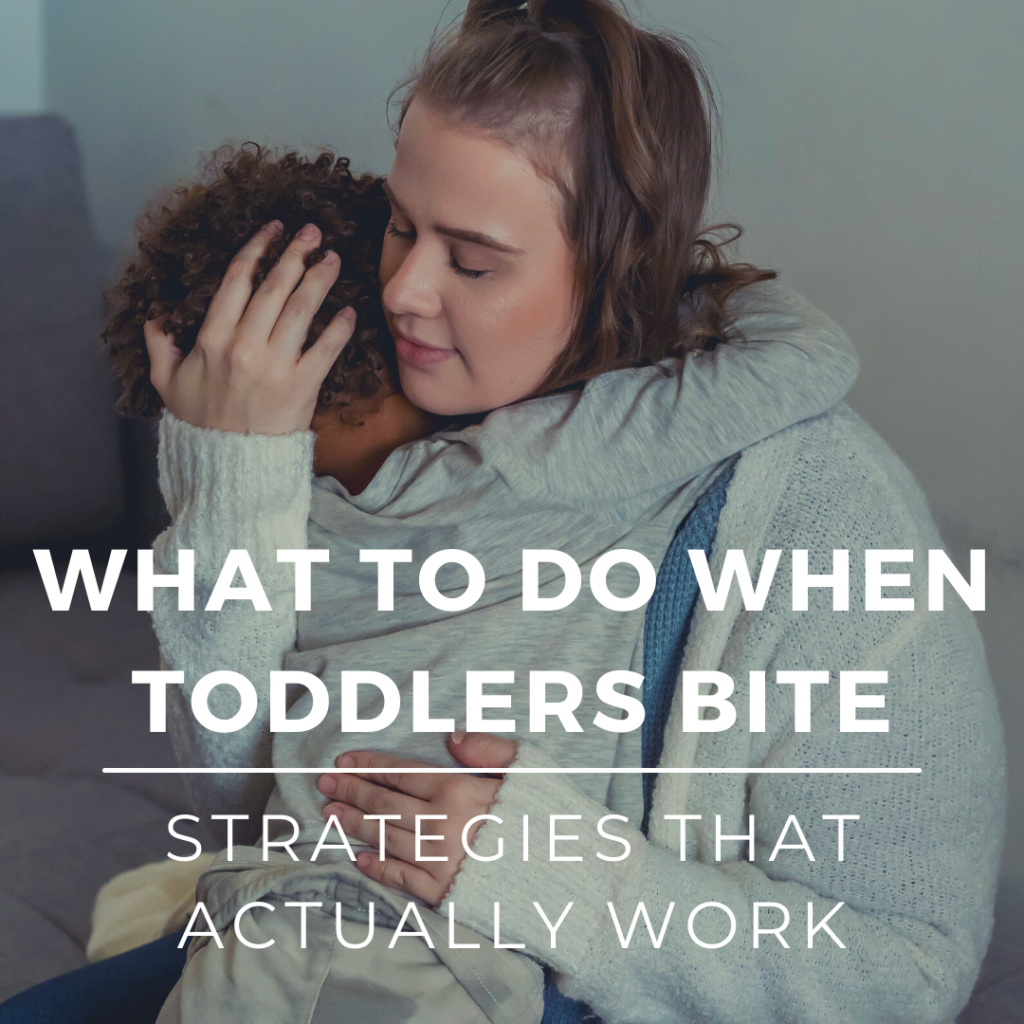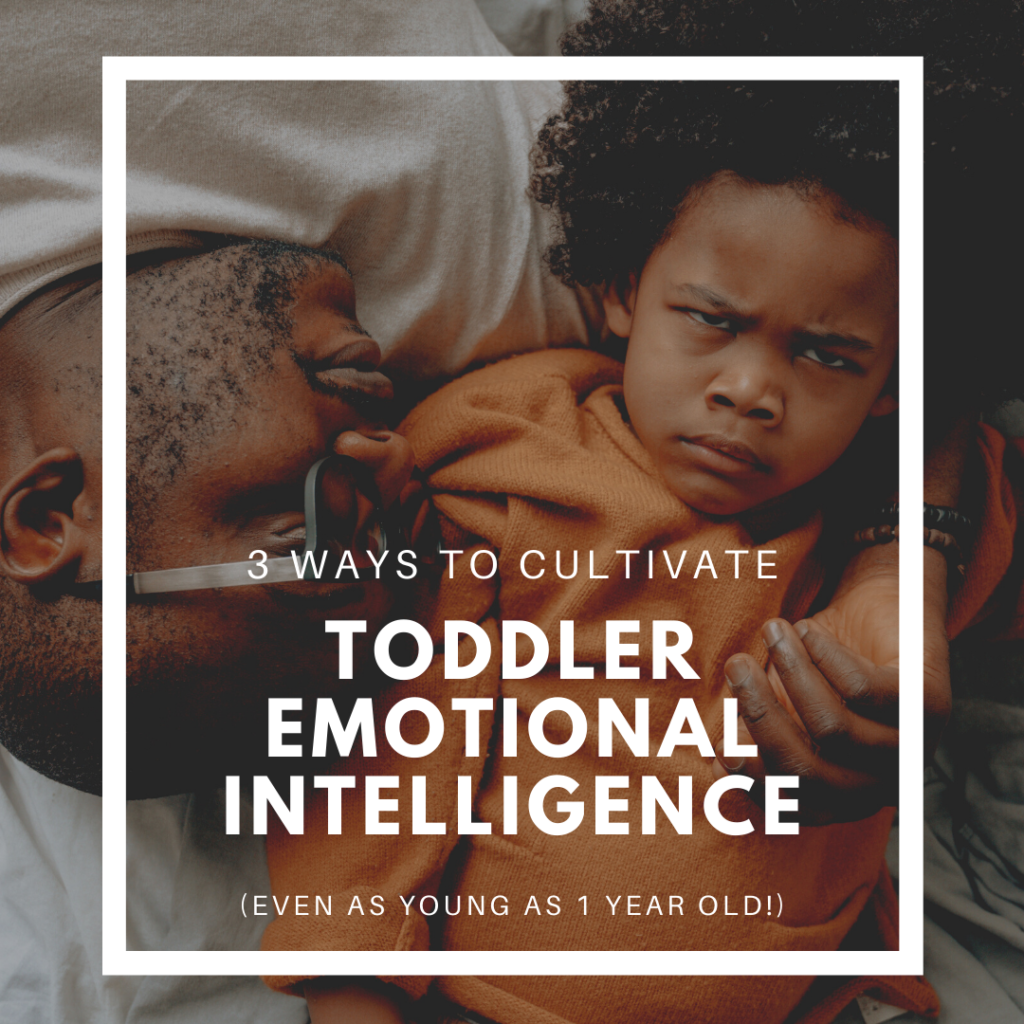
Let’s talk about BITING.
Aka, the actual WORST toddler behavior, the one that gets some kids kicked out of daycare, that strains relationships with siblings and playmates, and is generally brutal to contend with.
Biting sucks. I worked with a child several years ago that we once observed making 20+ bite attempts in less than 10 minutes (not counting the dozens of attempts the rest of the day!), so I know how difficult it can be. If you’re dealing with a child who bites, there is something you can do about it. Let’s talk.
First: stop labeling your child as a “biter,” and ask other caregivers to do the same. I know it’s a hard habit to break, but we NEED to change the way we talk about biting. Shifting the language allows you and other caregivers to separate the behavior from the child so we can be empathetic AND still hold boundaries.
Second, and I hope this goes without saying: please don’t bite your child back. Just don’t. I know your aunt/grandpa/neighbor might’ve you that it works, but all it does is get your child to avoid a behavior out of fear, rather than for any semblance of a deeper reason. This is a huge teaching opportunity for children, why rob them of that?
Third: keep in mind that this phase really is temporary. Your child is not going to be headed off to college still biting. I know that’s little comfort when you’re literally just. trying. to make it. to nap time. without another bite attempt — but let’s do our best to keep some semblance of perspective.
Speaking of perspective, here are a few things you (and other adults who care for your child) can do to keep a level head as you wade through this challenge:
1. Stay curious. Some common reasons kids bite others are lack of language, lack of self-regulation skills, teething, experimentation (cause-and-effect), or sensory needs — but these reasons are not always the same every time. Do your best to keep an open mind each time a bite happens.
2. Prioritize closeness, both figuratively and literally. A child who feels connected, safe, and understood is less likely to bite than a child who is less secure in her relationship with you. Also, if you stay physically close to a child who might bite, you have a chance at blocking some bite attempts or de-escalating battles before they get too nasty.
3. Be willing to experiment. What worked for your past students/niece/first kid might not work for the child in front of you. This isn’t the fault of you or the kid, it’s just the nature of the beast.
On to the good stuff: what can we actually DO when a bite attack strikes??
1. Connect. Comfort the child who was bitten. Empathize with the child who bit — name the feelings that you think may be behind the behavior, any apparent needs, etc.
2. Address the behavior. Wait until the big feelings have subsided. If the child who bit is still kicking and screaming, any lecture addressed at them is going to be hitting a brick wall.
3. Give an alternative. Tell them what behavior you DO want them to do instead. Keep it short and sweet, no need for a long-winded explanation.
4. Move on. Continue with your activity, or switch to something new, or change the scenery.
Here’s how this might play out:
*Child 1 bites child 2*
Connect: *Parent gently separates children, comforts child 2, and talks to child 1* “Wow, you must have been feeling really frustrated. It looks like you wanted to use her toy.”
Address the behavior: “I know you really wanted that toy. But biting hurts.”
Give an alternative: “You can say, ‘Can I play with it?’ or you can choose a different toy.”
Move on: “You know what? Let’s go out into the yard for a bit. Do you want to run, or kick the soccer ball with me?”
This approach also works well to address lots of other toddler behaviors like hitting, hair-pulling, throwing toys, etc.
Many thanks to “No-Drama Discipline” for many of the strategies listed here. For more tips on taming toddler behavior, check out my previous blog post, “Three Ways to Cultivate Toddler Emotional Intelligence.”
What’s your approach to difficult toddler behavior? Have you had a chance to try out these strategies?





0 Comments